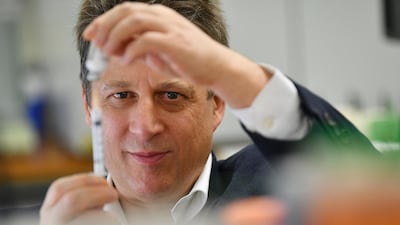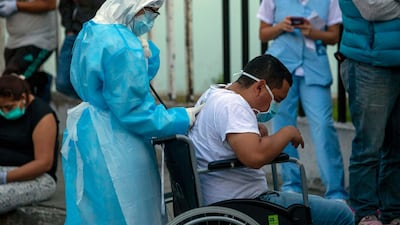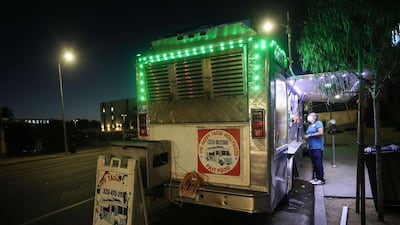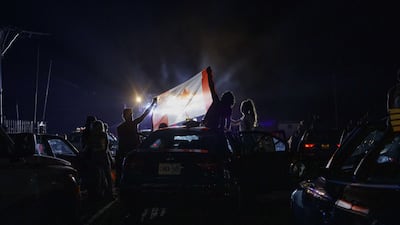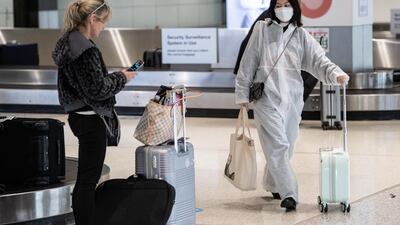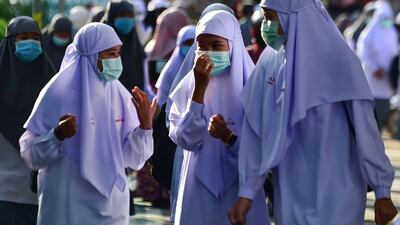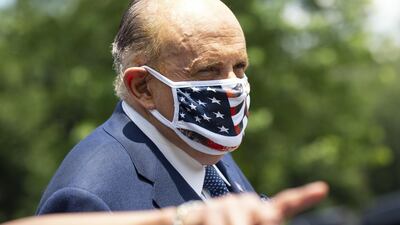UN diplomats could breathe sighs of relief this week after they finally voted to pass the Security Council's first resolution on the coronavirus pandemic, six months after Chinese media began reporting on an outbreak in Wuhan.
As the virus tore across continents, infecting 11 million people and claiming more than 500,000 lives, the council struggled to agree on how to word the document, with the US and China rowing over whether to make reference to the World Health Organisation.
For many, it was a case study in everything that is wrong about the UN.
The world body, which celebrated its 75th birthday last week, struggles with deepening geopolitical rivalries, Covid-19, climate change and wars in Libya, Yemen, Syria and beyond.
Fionna Smyth, from the charity Oxfam, said the UN resolution was “long overdue” and criticised envoys for “paralysis at this critical time”.
Richard Gowan, UN director for the International Crisis Group think tank, said the council had been “dysfunctional”.
Diplomats agreed. Christoph Heusgen, the UN ambassador for Germany, which on Wednesday assumed the rotating presidency of the Security Council, acknowledged that world powers were not meeting their obligations.
“There is no doubt that multilateralism has seen better times,” Mr Heusgen said in an online briefing, describing poor co-operation between the council’s 15 members.
He spoke of suffering in Libya as foreign powers sent troops and warplanes there despite a UN arms embargo.
In Syria, the council could not even agree on how to transport aid to about 11 million civilians who urgently needed it, Mr Heusgen said.
“The frustration must not lead to a situation where we give up,” he said.
“Every member of the Security Council has the obligation to do his or her job and see that we come to a result.”
Council members voted unanimously for the Covid-19 resolution on Wednesday, more than three months after UN Secretary General Antonio Guterres called for a global truce to help healthcare workers and those infected by the coronavirus in global hotspots.
The two-page document, drafted by France and Tunisia, calls for “all parties to armed conflicts to engage immediately in a durable humanitarian pause for at least 90 consecutive days” so that aid workers can access the needy.
_______________
Coronavirus around the world
_______________
But there were few signs that the council’s call for a truce would quickly lead to rebel and government troops laying down their guns and cutting peace deals in Syria, Yemen, Libya, Congo or other hotspots.
The Syrian government of President Bashar Al Assad has mostly won the country’s decade-long war but a military stalemate with Turkey in the north-western Idlib province could easily reignite into full-scale fighting.
In Yemen, the Iran-backed Houthi rebels ignored a unilateral ceasefire announced by the Arab Coalition in early April.
In Libya, the government in Tripoli seeks to consolidate gains made in recent weeks with Turkish assistance against the forces of military commander Khalifa Haftar.
The Security Council’s main task is to prevent conflicts, but its peace-making efforts often get derailed because its membership includes nations that are involved in those wars, or are allied to a government that is.
The council’s five permanent members – the US, Russia, China, France and Britain – can stop any action with a veto. On Syria, Moscow has used its veto 14 times in defence of Mr Al Assad’s government.
This week, the UN’s former peace envoy to Libya, Ghassan Salame, launched a bitter attack on Security Council members, saying he had been “stabbed in the back” by the same diplomats who hired him to end Libya’s chaos.
Mr Salame’s comments were strong for a diplomat, but they represent a growing frustration among ambassadors, aid workers and others when the UN’s top body grinds to a halt in an emergency.
UN chief Mr Guterres feels it too. In his message to mark 75 years since the UN Charter was signed in San Francisco in June 1945, amid the chaos of the Second World War, he said now was a good time to “reimagine multilateralism, give it teeth to function”.
Mr Gowan agreed. After months of “prolonged failure and bickering between the US and China”, passing the coronavirus resolution was “not enough”.
Instead of talking about peace, the council’s heavyweight members should use their influence to end wars.
"At the same time, Mr Guterres should use the resolution as a means to hold council and other UN members to account for their actions, praising those who support real peace efforts and raising questions about those who don't," Mr Gowan told The National.


